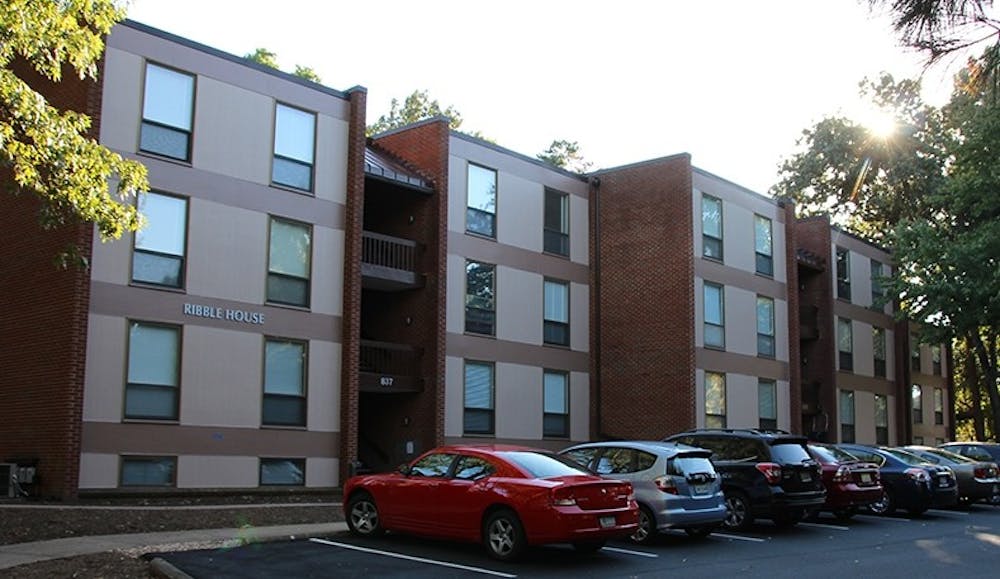The University is currently experiencing a housing crisis in which students are faced with extremely overpriced housing options both on- and off-Grounds. Students are forced to compete with one another for affordable housing and are often thrown into overpriced lease agreements at the beginning of the school-year before they are able to weigh the costs and benefits of that financial decision. As a public institution dedicated to the educational, physical and financial well-being of its students, the University should seek to reduce the economic burden of student life as much as possible by lowering prices for University housing.
According to the University’s Housing and Residence Life website, the perks of living in University housing include geographical proximity to classes and dining halls, affordability, “a commitment for the nine-month academic year only,” “the ability to live with friends while choosing among a range of housing styles” and “opportunities to make substantial contributions to your area and the University.” While the nine-month lease commitment is often hard to find in off-Grounds housing options that often baits students into 10-12 month lease agreements, this appears to be the only benefit of University housing that cannot easily be found in off-Grounds housing options. Aside from Brown College, which is located in the middle of Central Grounds, the geographical proximity to Grounds and affordability of University housing is generally comparable to off-Grounds housing options on Jefferson Park Avenue, Rugby Road, or the Corner.
Additionally, the University upperclassmen housing options are nowhere near as affordable as they should be. On-Grounds housing rates for upperclassmen range from $6,260 to $7,580 per academic year, rivaling many often significantly cheaper and geographically closer off Grounds housing options. A single bedroom in Copeley, Faulkner or one of the Language Houses costs $7,580 per academic school year, which can be broken down to an average of $842.22 per month.
The price of on-Grounds housing is absolutely ridiculous, especially when considering some housing locations that are are a similar distance away from the University are far more expensive than some off-Grounds housing options. For example, Oxford Hill — an off-Grounds apartment complex located about a 20 minute walk from Central Grounds — costs $578 per person per month for a 12 month lease, adding up to $6,369. This is much less expensive than living in a two bedroom floor-plan at the University-affiliated Copeley Apartments during the academic year for $7,580, even though they are essentially the same distance from Grounds and tenants only have a lease in Copeley for 9 months.
The University does, however, give students the opportunity to apply to the school’s resident advisor program, which serves as a free housing option for students who are unable to bear the financial burden of expensive housing either on or off-Grounds. During the terms of their employment, resident advisors are held responsible with overseeing the safety and well-being of dorm residents, in exchange for free housing in a furnished single bedroom in addition to 80 meal swipes and 130 plus dollars per semester. Although this program has the potential to significantly benefit economically disenfranchised students who need free housing in order to afford attending the University in the first place, the number of people who actually benefit from this program is very limited.
Unfortunately, considering the extremely competitive nature of this program and the very limited number of spots available, the option to become a resident advisor is not a realistic alternative for the high number of students who struggle to afford other housing options. The administration should seek to expand beyond this program to create more affordable University affiliated housing options for students.
Additionally, there are many students at the University who receive financial aid, which is used in part to pay for their housing. By providing financial aid towards housing, the University is helping those with the most need continue to receive their education. Still, there are students who may not qualify for financial aid, yet for whom the high price of on-Grounds housing presents a roadblock in their University experience. With these students in mind, the University should reduce the price of on-Grounds housing.
Not only do I believe that the University should lessen the financial burden of student housing — it also has the financial capability to do so. Considering the recent increase in tuition, it is clear that the University can afford to further subsidize living options for upperclassmen students who are unable to afford expensive residence options both on- and off-Grounds.
Because there are so many wealthier students at the University who can afford to live in overpriced housing options both on- and off-Grounds, many do end up living in existing on-Grounds housing. However, the University should make more of an effort to cater to students at every income level.
Ultimately, the University should not just be a money-making machine. Considering the school’s extensive endowment and Alumni Association, the University should subsidize its housing options more so that students who struggle to afford the financial burdens of tuition and student life may be reduced.
Audrey Fahlberg is an Opinion Columnist for The Cavalier Daily. She can be reached at a.fahlberg@cavalierdaily.com.







